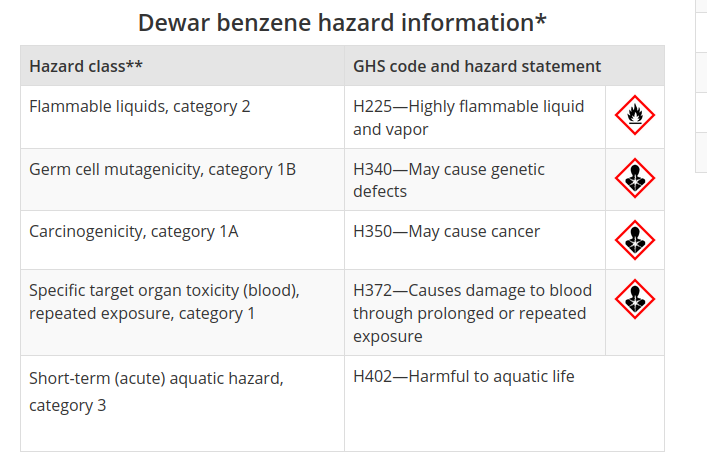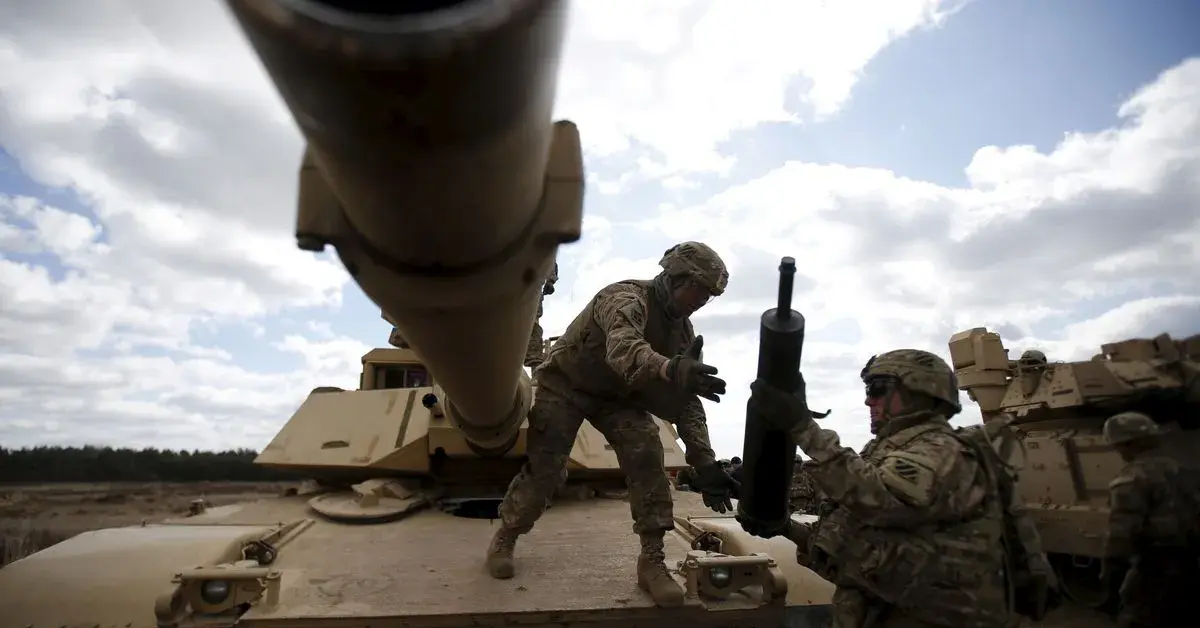cross-posted from: https://lemmus.org/post/587773
Edit: antiwar article, quotes for both articles
The rounds, which could help destroy Russian tanks, are part of a new military aid package for Ukraine set to be unveiled in the next week. The munitions can be fired from U.S. Abrams tanks that, according to a person familiar with the matter, are expected be delivered to Ukraine in the coming weeks.
Although Britain sent depleted uranium munitions to Ukraine earlier this year, this would be the first U.S. shipment of the ammunition and will likely stir controversy. It follows an earlier decision by the Biden administration to provide cluster munitions to Ukraine, despite concerns over the dangers such weapons pose to civilians.
The United States used depleted uranium munitions in massive quantities in the 1990 and 2003 Gulf Wars and the NATO bombing of former Yugoslavia in 1999.
Still, the radioactive material could add to Ukraine’s massive post-war clean-up challenge. Parts of the country are already strewn with unexploded ordnance from cluster bombs and other munitions and hundreds of thousands of anti-personnel mines.
https://news.antiwar.com/2023/09/03/us-to-arm-ukraine-with-toxic-depleted-uranium-ammunition/
But at this point in the war, the administration has shown it’s not concerned about damaging Ukraine’s environment. In July, the US started arming Ukraine with cluster bombs, which spread small submunitions over large areas. Unexploded submunitions, or bomblets, can be found by civilians years or decades after use. Because of their history of killing civilians, cluster munitions have been banned by over 100 countries.
deleted by creator
Unfortunately, in war, there are often no good answers. This time, it seems to be a question of continuing to use standard munitions, of which Ukraine is guzzling by the ton in order to repel the Russians, or use more effective, but more dangerous in the long term, weapons that could have a greater effect in the war effort. A choice of more people dying now or dying later.
Ukraine has seen its successes in pushing the Russians back, but it needs every edge it can get when fighting a nation several times its size.
deleted by creator
More realistically Ukraine has been requesting them for a while and the US finally gave in since the UK gave them some recently.
When you get an Abrams it comes with DU penetrators. Same as with Challenger which is why Britian has already supplied such weapons. You can’t supply a tank and not supply its ammunition.
there are often no good answers
No, but some answers are still less bad than others. This… is towards the bad end of the scale.
DU is no more toxic than any other toxic heavy metal. People have this unreasonable fear of anything that is associated with “nuclear” but it’s toxic in the same way mercury or cadmium or lead or arsenic is toxic. Its reactivity is so low it’s often used as a radiation shield.
Is using Cadmium a war crime?
It’s easy to make the call of sending these munitions overseas when it won’t be your own populace suffering the consequences.
It’s almost as if the Ukrainians aren’t the ones getting a final say in if it’s used…
I agree with you. This should not be happening.
Great, so Ukraine can look to a future of massive increase in birth defects, stillborn children, cancer, and heart defects.
It’s expedient for people in Western Europe and the US that this war be carried out with poisonous weapons - but they are not the ones who will live with the ecological damage in the aftermath.
And although it has been rather heavily suppressed in some quarters, that is what this means.
For years, medical doctors in Iraq have reported “a high level of birth defects.” Other peer-reviewed studies have documented a dramatic increase in infant mortality, cancer and leukaemia in the aftermath of US military bombardment. In Fallujah, doctors are witnessing a “massive unprecedented number” of heart defects, and an increase in the number of nervous system defects. Analysis of pre-2003 data compared to now showed that “the rate of congenital heart defects was 95 per 1,000 births - 13 times the rate found in Europe.”
It’s expedient for people in Western Europe and the US that this war be carried out with poisonous weapons - but they are not the ones who will live with the ecological damage in the aftermath.
Aren’t the Ukrainians the ones who are choosing whether or not to use them?
I guess the west should pledge to only engage in environmentally sustainable war? Certified organic thermobaric bombs?
The Ukrainian leadership is. But they are not the ones about to be born wirh painful defects.
To clarify, I am on Ukraine’s side in this war.
But being on the right side of a war of invasion doesn’t magically turn the Ukrainian military leadership into omniscient saints.
Depleted Uranium should not be used in any war. Period. If Ukraine is firing it at invaders on Ukrainian soil - and the Russians will be using it too I expect - the legacy is going to be horrendous.
The Russians have ALREADY been using it all along.
I get where you’re coming from, but it’s their country and their own children and families at risk both now and in future. I’m not about to make their decision for them, and I don’t think any of us have the right to.
I get where you’re coming from too. Especially since the Russians appear to have added that to their list of crimes. Fight uranium with uranium.
I’m very wary of the argument that people can use whatever weapons they like in their own country. War crimes are a thing in international law for good reason.
I’m a strong supporter of the “court of last resort” the ICC, and I firmly believe that it’s the duty of all the world’s citizens to oppose war crimes, genocides, and crimes against humanity wherever they occur.
Fighting war crimes with war crimes happens a lot - we have seen it in the past year in Ethiopia as well - but a line has to be drawn somewhere or attrocities keep escalating and everyone becomes monsters.
For me, that line is here. I appreciate that for you the line might be further along though.
War is toxic. The American soldiers who got sick from the burn pits weren’t burning DU.
DU is toxic in the same way mercury or cadmium is toxic: as a heavy metal. Its reactivity is very low. It’s entirely believable that Iraqis are suffering birth defects and other sicknesses from the toxic after-effects of the war, and also that DU plays a small part in it. The article doesn’t present any evidence that DU specifically and not the other thousands of toxins released during the war is responsible.
Well no, the article is about weird happenings in the research into this. You have to read actual research to see the evidence.
I apologize for not providing it here. I’m uncomfortably aware that I sound like one of those annoying trollish people who say Do yOuR oWn ResEarch instead of presenting evidence.
I read a bunch of research papers on depleted uranium years ago and found it very convincing, and that’s what my opinion is based on, but unfortunately I’m finding google and duckduckgo kind of useless these days (any recs welcome), it’s late at night and I’m tired. @Holden_Fartzen@beehaw.org if you have anything handy?
Are you saying there’s evidence that DU is toxic, or that it is the primary cause of incidents of congenital heart failure in Fallujah?
In the first case I completely agree DU is absolutely toxic. If a tank were lit up by a DU penetrator I absolutely would not want to breathe the smoke. But I would not want to breathe the smoke from a burning tank and I don’t really care how it was knocked out. The smoke is going to be a toxic mess regardless. By the way the alternative is Tungsten which is 1) also somewhat toxic and 2) often alloyed with Thorium which is also radioactive.
With regards to Fallujah, one problem I have with this theory is that DU is used in Armor Piercing rounds (specifically armour-piercing fin-stabilized discarding sabots or APFSDS). The most important thing to understand about Fallujah is that the insurgents did not have armored vehicles in that battle and it would have made no sense to use APFSDS against soft targets. For instance it’d go right through a pickup truck and leave a tiny hole. The discarded fins would do more damage than the penetrator. Note I’m not arguing that Fallujah wasn’t left a toxic mess by the Americans. There’s millions of rounds of lead m4 ammo for instance. To say nothing about the residue of nalpam and white phosphorus.
By the way one of the main ingredients of nalpalm is Benzene or, as my chemist friend said “Benzene is what anti-nuclear people think nuclear waste is”

https://www.acs.org/molecule-of-the-week/archive/d/dewar-benzene.html
You seem to know a lot more about ordinance than I do but from what you’re saying, it sounds like tungsten that is not alloyed with thorium would be the way to go!!
I wish there were more international cooperation on this stuff.
My parents’ generation all seem to hate benzene and warn us it’s toxic as hell. That’s the only time it seems to come up, might be to do with napalm now that you mention it. Much shorter life and half life I guess.
For what it’s worth I also think deliberate napalm and white phosphorous use on humans are war crimes as well.
A couple of years ago Indonesia used white phosphorous on some West Papua villages and the results were horrific.
Edit, just realised I forgot to answer your first question. I do not recollect the details about the relative proportions of other causes of birth defects etc in that environment but I would argue that a) DU alone definitely earned its place as an unethical weapon and b) any known risk factor with that high a contribution should be phased out too.
It’s a type of “future eating”.
🤖 I’m a bot that provides automatic summaries for articles:
Click here to see the summary
The rounds, which could help destroy Russian tanks, are part of a new military aid package for Ukraine set to be unveiled in the next week.
The munitions can be fired from U.S. Abrams tanks that, according to a person familiar with the matter, are expected be delivered to Ukraine in the coming weeks.
It follows an earlier decision by the Biden administration to provide cluster munitions to Ukraine, despite concerns over the dangers such weapons pose to civilians.
The United States used depleted uranium munitions in massive quantities in the 1990 and 2003 Gulf Wars and the NATO bombing of former Yugoslavia in 1999.
The U.N. nuclear watchdog, the International Atomic Energy Agency, says that studies in former Yugoslavia, Kuwait, Iraq and Lebanon “indicated that the existence of depleted uranium residues dispersed in the environment does not pose a radiological hazard to the population of the affected regions.”
Parts of the country are already strewn with unexploded ordnance from cluster bombs and other munitions and hundreds of thousands of anti-personnel mines.
Saved 66% of original text.




